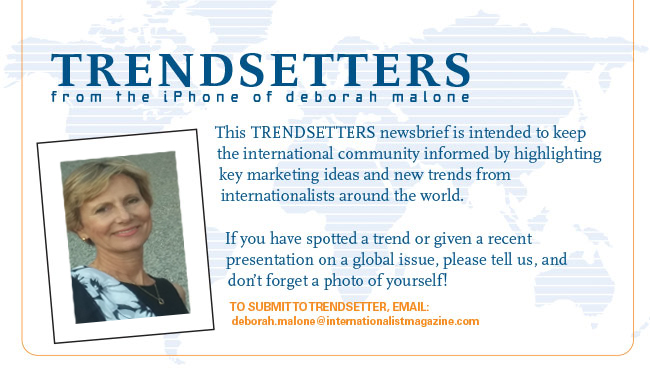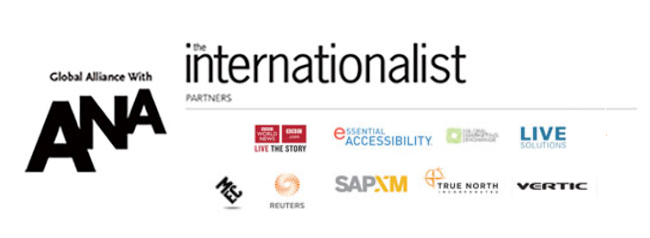

Tom Denford
See the current issue
of The Internationalist magazine
Find out how to sponsor an issue of Trendsetters
|
|
Trendsetters: Tom Denford of ID Comms Looks at the Evolution of Media Transparency Issues
While "transparency" remains an industry buzzword, there has been an evolution in both marketer understanding and actions over the past two years. Tom Denford, co-founder of strategic media consultancy ID Comms, believes that despite the recent challenges surrounding transparency issues, he's buoyed by the fact that media discussions have risen higher on the corporate agenda.
"Marketers," he says, "are taking media more seriously and applying resources internally to manage this last amount of money. Hopefully, more are seeing media as an investment rather than a cost."
He adds that transparency discussions have caused marketers to see media's power in driving their business outcomes at a time when they're also striving to make media more accountable and effective. "At the same time, media has become hugely complex and needs more governance and resources to manage it. Plus, concerns about the media supply chain-- especially in digital-- has caused marketers themselves to become more involved in identifying how their money flows throughout the buying process."
Denford credits work done by the ANA, the WFA, and ISBA, as well as speeches by P&G's Marc Pritchard on media transparency, ad fraud and brand safety, as creating change. He also believes that three new behaviors will be at the forefront of media transparency in 2018. They include:
- Operating Models for Media. According to Denford, advertisers will define long-term internal strategies for media management, and then build capabilities and processes into an operating model for media. He sees this as being clear about the value of media-- not merely the price of media, while determining what resources are required internally and externally.
- Fragmentation of Media Scope. He believes that marketers will want to understand the entire media process from data and analytics, insight and strategy through to media activation and tactics. He expects more advertisers to interrogate these procedures and identify which parts require more control. Then, he hopes that marketers will build an operating model for media which provides the controls they need. "Driving greater accountability and transparency over media budgets," he says, "will enable more marketers to see how media is an investment, and not a cost."
- Action Plan for Media. – Tom Denford also anticipates that more brands will follow P&G's lead to define an action plan that reduces wasted media dollars, while implementing greater accountability and transparency from the media supply chain.
Interestingly, a new report by ID Comms has also found that 41% of advertisers admit they are still using media technology "ineffectively" or "completely ineffectively." Some marketers may have a longer path ahead if they are to adopt the new transparency ideals as outlined by Denford. Plus, the research suggests that this lack of knowledge leaves advertisers reliant on agency solutions.
The technology discussed in the survey is tech used to power most digital media buying. While it has become an essential part of the media landscape, only 15% of advertisers claim to be using it "effectively." According to the ID Comms survey, no marketers claimed to be using it "very effectively."
Advertisers also admitted a lack of understanding regarding how each technology platform within the stack contributes to the value chain and serves specific business/media goals. Eight percent claimed a "good understanding," 67% "some understanding," 22% "little understanding," and 3% "no understanding." No respondent claimed a "full understanding" of the complete functioning of their tech stack.
The ID Comms 2017 Global Media Technology Report also found that advertisers were turning to a wide variety of advisers in their search for guidance on the best technology to use and how to deploy it. While both agency and advertisers agreed specialist tech consultants are trusted most often to advise advertisers on tech solutions (30% and 28% respectively), advertisers also turned to media agencies (23%) as a source for solutions.
These findings were based on 229 respondents identified as Marketing, Media and Procurement professionals with a range of global, regional and local market responsibilities in companies spending over $40bn globally on advertising each year. Seventy-seven percent of the respondents were Europe-based, 11% were from the US, and the remaining 12% represented the rest of the world.
ID Comms is a strategic media consulting company, founded in 2009. The company helps leading advertisers around the world as a trusted advisor to navigate the complexities of the changing media landscape.


